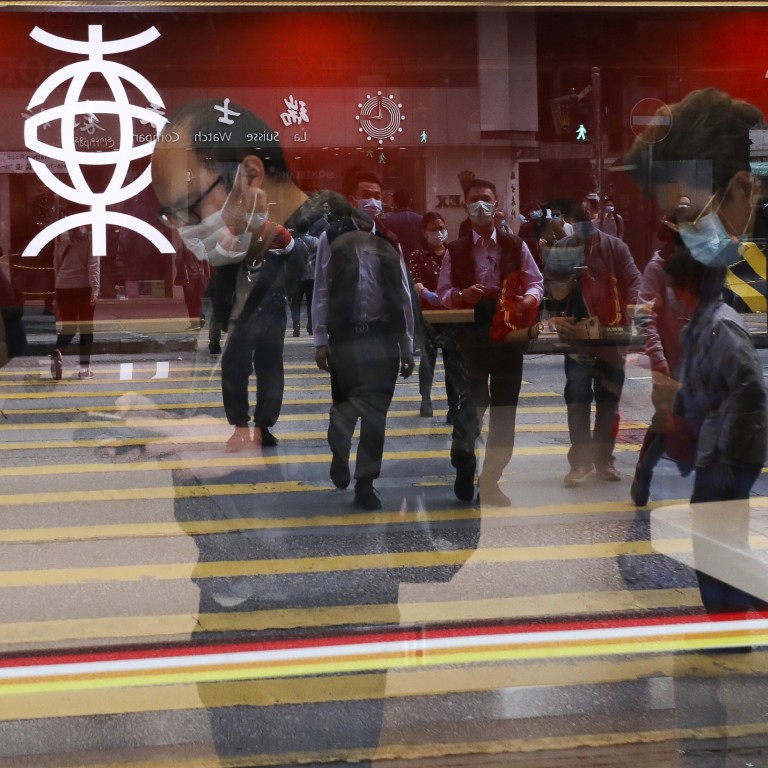
Coronavirus has brought out ‘Hong Kong spirit’, as firms borrow to adapt to new normal, Bank of East Asia says
- About 1,800 of bank’s customers have applied for HK$1.3 billion in government guaranteed loans since April
- Companies are adapting, with clothes manufacturer making masks, restaurant operator expanding its takeaway and delivery services
The coronavirus pandemic might have hit the city’s economy hard, but it also brought to the fore “the Hong Kong spirit”, with businesses quickly adapting to meet a new normal, according to an executive at Bank of East Asia (BEA).
Half of the loans at the 101-year-old family-run bank recently approved were borrowed by corporate clients looking to change their business models, with the pandemic disrupting how people work, dine and travel.
“We found that many of our customers were very positive minded. While the pandemic has hurt their business, it is also a game-changer, letting these companies rethink their business models to meet the new way in which people work, shop and dine,” said Thomas Tsui Chun-man, the general manager and head of corporate banking at BEA.

04:33
Double punch for Hong Kong’s economy from coronavirus following months of civil unrest
“This is the real Hong Kong spirit – our businessmen are quick to make a change to meet the new environment.”
The pandemic and resulting containment measures have had a huge impact on retailers, restaurants and tourism globally. Hong Kong’s economy shrank 8.9 per cent in the first quarter this year for its worst slump since records began in 1974. The city’s unemployment rate rose 5.9 per cent in the March to May period, with 230,400 people unemployed, its worst decline since the 2008 financial crisis.

The loans guaranteed by the government are aimed at helping local companies – small listed companies as well as 340,000 SMEs – cope with the economic fallout of the pandemic. Many of them, however, are not short of cash.
“About half of our borrowers wanted to use the money to move forward, to change their business models to prepare for post-pandemic demand,” Tsui said.
A bank customer that makes clothes has turned to making masks, while another clothes manufacturer decided to make underwear after it found people were more focused on these garments during the pandemic.
Protests could hammer Hong Kong’s economy, Bank of East Asia warns
A restaurant operator took out a loan to expand its takeaway and delivery services. A machines manufacturer borrowed HK$4.5 million to produce robots that will deliver meals to patients in hospitals. A food retailer took a loan to expand its frozen foods section, while others used the money to upgrade their online shopping services.
Besides the new loans, the bank has also given 1,600 existing customers a six-month repayment holiday for a combined HK$20 billion worth of loans, Tsui said.

